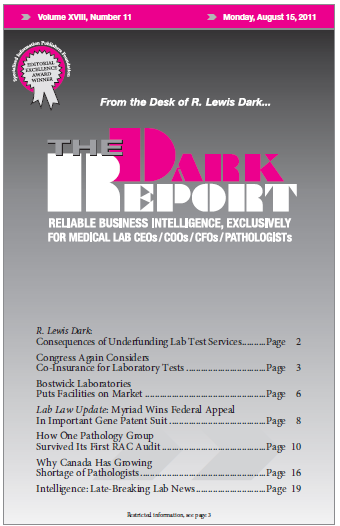IN THE CLOSELY-WATCHED COURT CHALLENGE involving gene patents, Myriad Genetics, Inc., of Salt Lake City, Utah, recently won a favorable decision from the federal appeals court. However, legal experts believe that the plaintiffs are likely to ask the Supreme Court to review the case. It was July 29 when the United States Court of Appeals, …
Myriad Wins Federal Appeal In Important Gene Patent Suit Read More »
To access this post, you must purchase The Dark Report.


